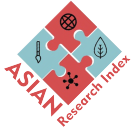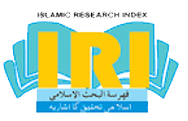Tradition and Innovation A Study of D. T. Suzuki’s Innovations in Zen Buddhism
Keywords:
Tradition, Innovation, Zen, Buddhism, D. T. SuzukiAbstract
This research paper explores the significant concept of innovation within the evolving traditions, with a particular focus on the innovative ideas introduced by D. T. Suzuki, the pioneering figure in Zen Buddhism who established or propagated Zen Buddhism in America. D. T. Suzuki’s journey to America, guided by the directive of his mentor Soen, aimed to propagate Buddhism to the Western world. This paper aims to analyze comprehensively D. T. Suzuki’s role in introducing the novel ideas that expanded beyond the traditional scope of the guidelines preached by Zen’s spiritual masters. Central to this exploration is the inquiry into whether those innovative ideas align with the continuum of already established teachings of the tradition or represent a deviation from it. By dissecting these various ideas and beliefs which D. T. Suzuki introduced, this paper seeks to provide insights into their implications for the ongoing trajectory of the tradition.
Furthermore, the paper acknowledges the pivotal role of Suzuki’s strategic initiatives and leadership that played a crucial role in propagating Zen Buddhism to the West, emphasizing his advocacy for inner spiritual experience over intellectual comprehension. Suzuki's efforts reshaped Zen as a dynamic, experiential tradition that resonated with Western audiences, aligning with trends towards individualism and personal spirituality. His comparative analyses, notably with Christianity, positioned Zen as offering a more immediate path to spiritual understanding through direct mystical experience. Furthermore, Suzuki’s perspectives on science and religion underscore his belief in their complementary roles in human inquiry. He argued for a harmonious coexistence between scientific empirical methods and Zen's introspective spiritual practices, advocating for a holistic approach to existential questions. Suzuki’s nuanced views on pantheism expand this framework, proposing a comprehensive worldview that integrates philosophical, religious, and moral dimensions to enrich human understanding of reality and existence.
Overall, Suzuki’s contributions to Zen Buddhism and his philosophical explorations continue to influence contemporary interpretations of Eastern spirituality, fostering dialogue across cultural and intellectual boundaries.














